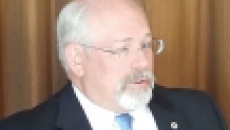Privacy & Security
HIMSS is working with the U.S. Department of Health and Human Services, through HHS' Innovator in Residence program, to develop a strategy for nationwide patient data matching.
A new report from Experian Data Breach Resolution says healthcare will face "a perfect storm" for breaches in 2014. The Affordable Care Act, with its increased activity, as well as more people signing up for health insurance will only make the target that much larger.
Google users may have come across the protected health information of nearly 33,000 individuals over the last two months, after a health system's security gaffe left patient data exposed online.
The question is how to support and encourage changes in healthcare even as it is being molded by a digital tidal wave. Policy surely can't keep up, though the federal government and its host of volunteer advisory boards are losing sleep in a valiant effort to do so.
Most people are optimistic about technology innovations advancing healthcare, are willing to participate in virtual healthcare visits with their doctor, and would use health sensors in their bodies and even their toilets, according to a new study commissioned by Intel Corporation.
It's an ironic story. The Office for Civil Rights, the division of HHS responsible for investigating HIPAA privacy and security violations, is now facing scrutiny after its own security practices failed to meet federal requirements.
Healthcare cloud services company ClearDATA Network closed an over-subscribed $14 million Series B funding round. The funding provides the company with capital to maximize its growth opportunities and momentum in the market, says ClearDATA President and CEO Darin Brannan.
Mac McMillan, CEO of CynergisTek, talks about the HIPAA Omnibus rule, implications of its enforcement, and Business Associate Agreements at the 2013 Privacy and Security Forum.
Some 90,000 University of Washington Medicine patients got a surprise this Thanksgiving, and it wasn't a very good one.
In its second reported data breach this fall, Kaiser Permanente is notifying patients seen at its Anaheim Medical Center that their protected health information has been compromised after a USB flash drive containing patient data went missing.
